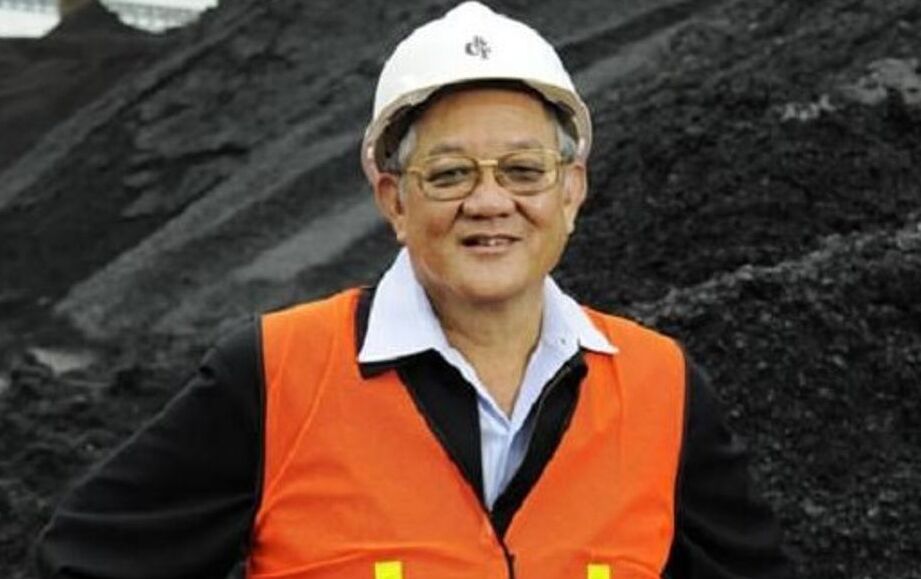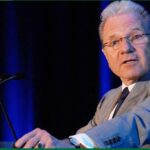- Home
- Billionaires
- Investing Newsletters
- 193CC 1000
- Article Layout 2
- Article Layout 3
- Article Layout 4
- Article Layout 5
- Article Layout 6
- Article Layout 7
- Article Layout 8
- Article Layout 9
- Article Layout 10
- Article Layout 11
- Article Layout 12
- Article Layout 13
- Article Layout 14
- Article Sidebar
- Post Format
- pages
- Archive Layouts
- Post Gallery
- Post Video Background
- Post Review
- Sponsored Post
- Leadership
- Business
- Money
- Small Business
- Innovation
- Shop
Recent Posts
The Remarkable Journey of Low Tuck Kwong: From Humble Beginnings to Indonesia’s Coal King

Low Tuck Kwong, often referred to as the “Coal King of Indonesia,” is a name that resonates across the business and energy sectors in Southeast Asia and beyond. His story is one of resilience, strategic thinking, and relentless ambition. From relatively modest origins in Singapore to becoming one of Indonesia’s richest men and a major figure in the global coal industry, Low’s life serves as an example of how calculated risk-taking, deep industry knowledge, and a relentless drive for success can transform a person’s destiny.
Born in Singapore in 1950, Low Tuck Kwong had early exposure to the construction and engineering sectors through his father, who owned a small construction company. This upbringing undoubtedly provided him with a sense of discipline and an understanding of business fundamentals. However, Low was not content with remaining in the shadow of his father’s modest enterprise. With a strong sense of purpose and an eye for opportunity, he looked toward Indonesia—a country with vast natural resources and significant untapped potential—as the land where he could build his future.
Relocating to Indonesia in the 1970s was a pivotal move for Low. At the time, Indonesia was undergoing rapid development, and its natural resource sector was emerging as a crucial component of its economy. Low started his journey in Indonesia by involving himself in construction and infrastructure-related projects. It wasn’t long before he recognized the immense potential in the coal mining sector, a relatively underdeveloped industry at that time. With a visionary mindset, Low began laying the groundwork for what would become one of the most successful mining enterprises in the country.
Low Tuck Kwong founded Bayan Resources in 1997, during a time when Indonesia’s mining regulations and political climate were both evolving. His ability to navigate the complex regulatory environment and forge strategic partnerships allowed the company to grow steadily. Under Low’s leadership, Bayan Resources expanded its mining operations, acquired valuable concessions, and established a reputation for reliability and operational excellence. His commitment to environmental standards and safety protocols also contributed to the company’s legitimacy and trust within the industry.
Through the 2000s and 2010s, Bayan Resources grew into a powerhouse. The company’s coal assets, particularly in East Kalimantan, became critical to Indonesia’s coal exports. Low’s business acumen was evident in how he diversified his operations, invested in logistics infrastructure like coal ports and barging systems, and ensured the company maintained strong margins despite fluctuating global coal prices. His strategic investments helped insulate Bayan Resources from many of the risks that affected other players in the sector. This risk mitigation strategy was instrumental in propelling him to the upper echelons of Indonesia’s billionaire class.
What sets Low Tuck Kwong apart is not just his success in coal mining but his ability to anticipate market needs and position himself accordingly. While many businesspeople were wary of Indonesia’s regulatory environment, Low embraced it, often working closely with government bodies to ensure compliance and sustainability. His business model centered not only on profit but also on building a legacy of responsible mining. By aligning his corporate goals with national development interests, he was able to secure long-term operational success and gain the support of stakeholders.
Despite his immense wealth and influence, Low Tuck Kwong remains a relatively private figure. Unlike many high-profile entrepreneurs, he shuns the limelight and maintains a low public profile. This humility, however, does not diminish his impact. Those who know him describe him as a disciplined, focused, and deeply knowledgeable leader. His employees admire his straightforward management style and his insistence on operational excellence. This quiet yet firm leadership style has fostered a loyal workforce and a strong corporate culture at Bayan Resources.
In recent years, Low’s name has frequently appeared in Forbes’ rankings of the richest individuals in Indonesia and Southeast Asia. His net worth has seen substantial growth, particularly during times when global demand for coal surged. While global sentiment is gradually shifting toward renewable energy, Low has acknowledged these changes and shown interest in aligning with cleaner energy initiatives. His company has reportedly looked into opportunities for improving the sustainability of its operations and investing in technological innovations to reduce environmental impact.
Low Tuck Kwong’s life and career offer valuable lessons for entrepreneurs and aspiring business leaders. He exemplifies how vision, courage, and perseverance can turn challenges into opportunities. His decision to move to a foreign country, invest in a risky but promising sector, and build an empire from the ground up speaks to the depth of his entrepreneurial spirit. His journey also highlights the importance of adaptability, as he has managed to thrive in an industry known for volatility and intense competition.
Today, Low’s legacy is not just measured by his wealth but also by the impact he has had on Indonesia’s mining landscape and economic development. His company has created thousands of jobs, contributed significantly to export revenues, and helped modernize the country’s mining infrastructure. He is also an example of how business leaders can play a vital role in nation-building through responsible practices and long-term thinking.
In conclusion, Low Tuck Kwong is more than just a coal magnate. He is a visionary who saw opportunity where others saw risk. He is a builder—not just of companies, but of systems, infrastructure, and human capital. His journey from a small construction environment in Singapore to becoming Indonesia’s Coal King is a testament to the power of strategic vision and unyielding determination. As the world continues to evolve and as industries face new challenges, Low’s legacy will continue to inspire and influence the next generation of entrepreneurs in Asia and beyond.
- Asian business leaders
- Asian economy
- Bayan Resources
- billionaire mindset
- business growth strategy
- Business Legacy
- Business Resilience
- Business Success Story
- Business Visionaries
- coal industry leader
- coal logistics
- Coal Mining
- corporate responsibility
- East Kalimantan
- Economic Contribution
- Economic impact
- Energy Sector
- Energy Transition
- entrepreneurial success
- environmental compliance
- global coal market
- Indonesian billionaires
- Indonesian Economy
- Indonesian exports
- Indonesian natural resources
- Indonesian Tycoon
- Industrial Development
- infrastructure investment
- International Expansion
- long-term planning
- Low Tuck Kwong
- low-profile billionaire
- Market Adaptation
- mining empire
- Mining infrastructure
- mining innovation
- mining mogul
- operational excellence
- private billionaires
- resource industry
- responsible mining
- Singapore entrepreneurs
- Southeast Asia tycoons
- Southeast Asian development
- Strategic Leadership
- sustainable mining
- Visionary Entrepreneur
- Wealth Creation
- workforce loyalty
Recent Posts
Categories
- 193 Countries Consortium Partner1
- 193cc Digital Assets2
- 5G1
- Aerospace & Defense48
- AI37
- Arts3
- Banking & Insurance11
- Big Data3
- Billionaires1,506
- Boats & Planes1
- Business332
- Careers13
- Cars & Bikes79
- CEO Network1
- CFO Network17
- CHRO Network1
- CIO Network1
- Cloud10
- CMO Network18
- Commercial Real Estate7
- Consultant1
- Consumer Tech194
- CxO1
- Cybersecurity73
- Dining1
- Diversity, Equity & Inclusion4
- Education7
- Energy8
- Enterprise Tech29
- Events11
- Fintech1
- Food & Drink2
- Franchises1
- Freelance1
- Future Of Work2
- Games149
- GIG1
- Healthcare79
- Hollywood & Entertainment203
- Houses1
- India’s 1000 Richest1
- Innovation46
- Investing2
- Investing Newsletters4
- Leadership65
- Lifestyle11
- Manufacturing1
- Markets20
- Media327
- Mobile phone1
- Money13
- Personal Finance2
- Policy569
- Real Estate1
- Research6
- Retail1
- Retirement1
- Small Business1
- SportsMoney42
- Style & Beauty1
- Success Income1
- Taxes2
- Travel10
- Uncategorized15
- Vices1
- Watches & Jewelry2
- world's billionaires1,475
- Worlds Richest Self-Made Women2
Related Articles
Francis Choi: The Toy Tycoon Behind a Billion-Dollar Empire
Francis Choi Chee-ming, often referred to as Hong Kong’s “King of Toys,”...
By 193cc World's BillionairesJune 6, 2025Francine von Finck and the Legacy of a Discreet Fortune
Francine von Finck, a name that commands respect in elite business circles,...
By 193cc World's BillionairesJune 6, 2025The Life and Legacy of Stefano Pessina
Stefano Pessina, one of the most influential figures in the global pharmaceutical...
By 193cc World's BillionairesJune 6, 2025John Morris: A Life of Vision, Growth, and Legacy
John Morris, the founder of Bass Pro Shops, is an iconic figure...
By 193cc World's BillionairesJune 6, 2025















Leave a comment